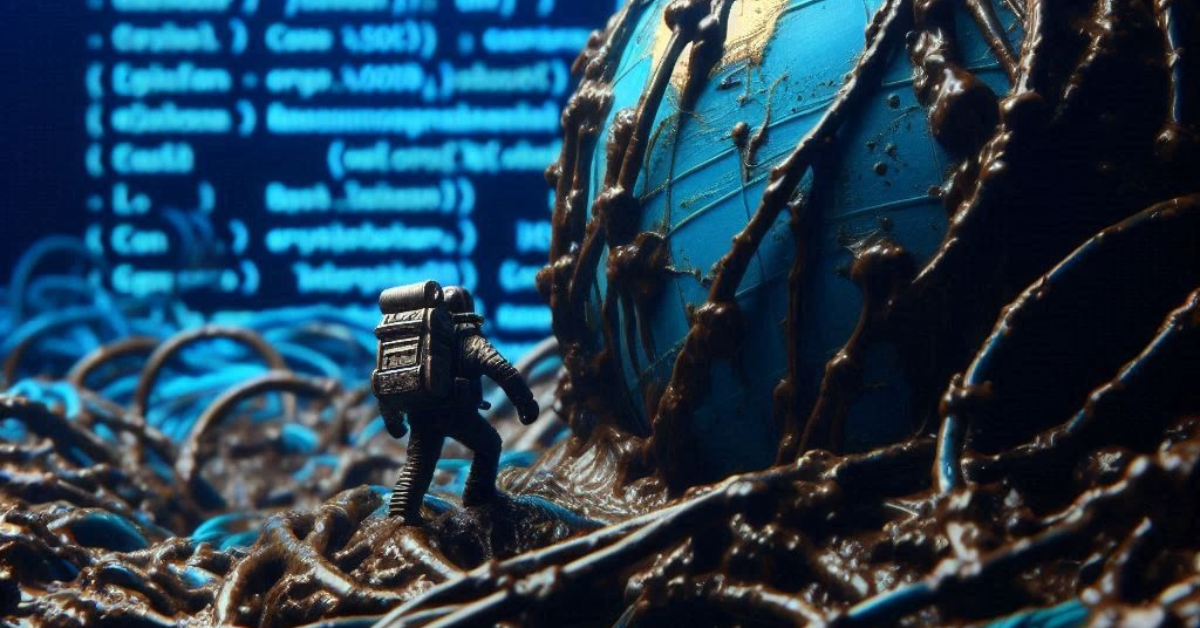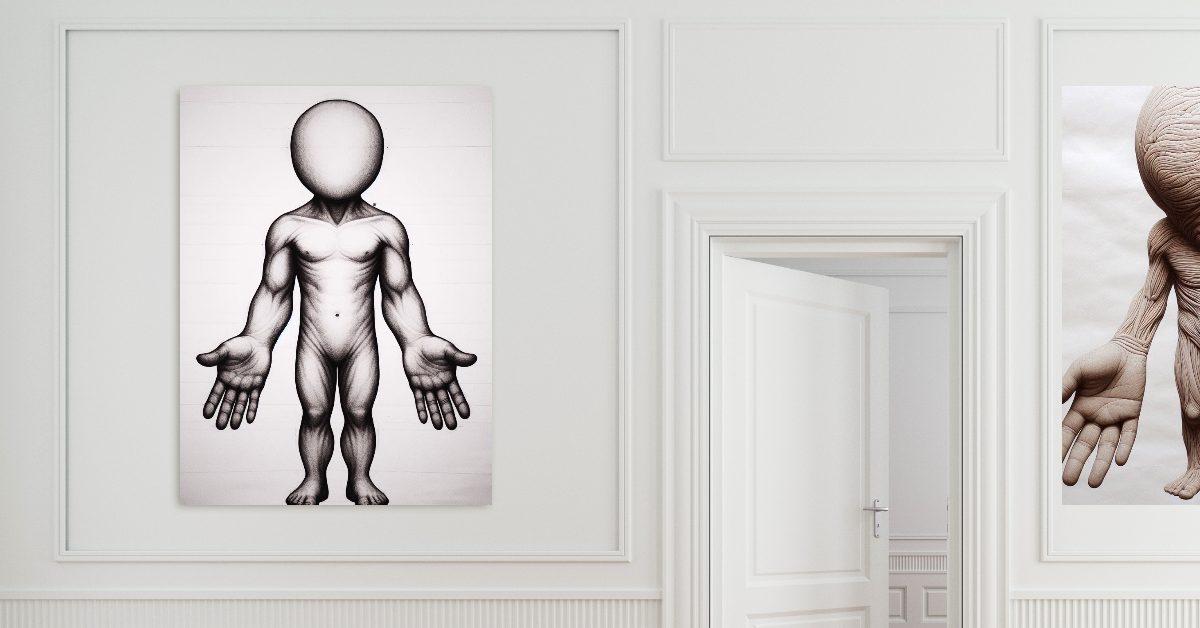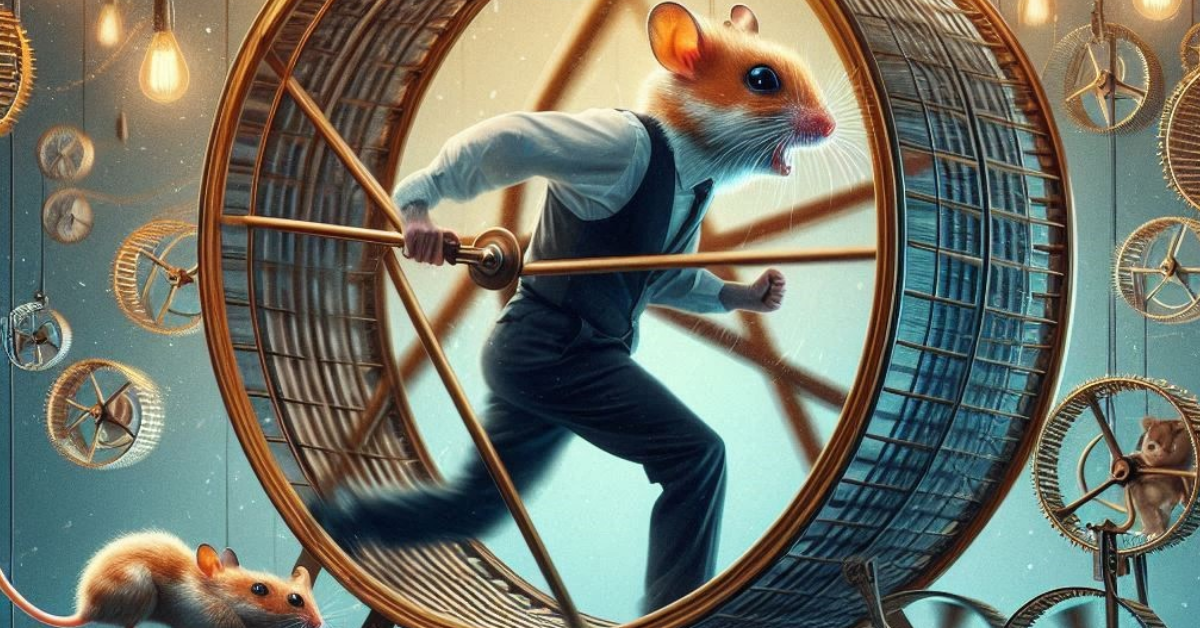Life, Code, and Chaos: Find your way to Escape the Big Ball of Mud

Immersed in the whirlwind of evolving tech, we often lose sight of balance. Always learning, contributing, and rushing to achieve more, we find ourselves lost in the 'big ball of mud' of codes and technologies. Let's explore how we can navigate this chaos and reconnect with what truly matters.
A metaphor of life
Our life is like a painting of a human figure, where we add something new to our big white paper sheet each day. There is no eraser or an "undo" option (Ctrl+Z) to undo our mistakes. We learn to draw lines through trial and error or ask for help if we dare to do so. However, mistakes are an essential part of the learning process necessary to learn how to draw. Our lines may not be so visible in childhood, but as we grow older, our pencils and paper become more sensitive. In adulthood, our lines become permanent so that even a single mistake can leave a lasting scar on the body or face of the figure. It can be challenging even for an extraordinary painter to transform an erroneous, unnecessary, or unintended line into something meaningful.
Our prosperity is closely linked to the beauty of our painting. The more stunning work, the more relaxation and ease will be experienced in our lives. Ignorance is not bliss here. We must strive to find the perfect balance that creates harmony and beauty in our art. That is what they call the Golden Ratio in painting. It would be unattractive if the figure had a large head without eyes or perfect hands with short legs. We must always strive to find a balance in our work to create the most pleasing results.

Along this journey, sometimes we might get distracted by the noises around us. This distraction can cause us to lose focus and forget to take a step back to evaluate our work from different angles to ensure that it is on the right track and still adheres to the golden ratio or the big picture in our minds. In addition, we can be easily manipulated by others who try to manufacture our desires and passions without us even realizing it. This can lead us down a dangerous path, causing us to create something that does not align with our original vision. When we obsess over details and not taking a step back, it becomes difficult to understand the bigger picture and what we are trying to achieve.
Our life as an IT worker
Let's consider the metaphor mentioned earlier and apply it to ourselves as IT workers, regardless of the field we specialize in. Let's pause and reflect on our daily work.
We are surrounded by a wide range of ever-evolving technologies, tools, and programming languages, which can make us feel like we are stuck in a cycle of constantly learning new technologies, mastering older ones, and then starting from scratch when new ones emerge. For example, you might be experienced in one area of programming but a beginner in AI. In short, we are bombarded with new technologies, and playing catch-up with our schedules, and we consider this as normal.
As IT workers, we constantly optimize, improve, upgrade, and brush up our technical knowledge and skills almost every day, voluntarily, without even being told by someone. Some of us yet might go beyond that, contributing to open-source projects, and creating content on platforms like YouTube, podcasts, and blogs often without direct financial gain but as a way of giving back to the community.
We have immersed ourselves in a fast-paced life, always fully booked with new goals and planning for achievements. Even as we are in the middle of one task, the next one is already demanding our attention. We are always in a rush to achieve more and get more. This endless cycle has become the norm and comes at the expense of remaining immature in other aspects of life, leaving us feeling unbalanced and disconnected from the things that truly matter in life, just like a figure on a paper sheet with a nice hand for work but no eyes to observe.
Whether we like it or not, this is just the tip of the iceberg of our lives. But, truly, think about it. How is it possible to find a balance there? Do we treat ourselves like someone we are responsible for helping, or like a tyrant boss? Is contemplation degraded in the new world to calculation and just mind functioning? Are we lost in the big ball of the mud of our codes, pipelines, clouds, and technologies?
Yanis Varoufakis, a Greek economist, once said, "In important ways, we resemble hamsters on their spinning wheels: no matter how fast we run, we are not really going anywhere. We might well conclude that the machines aren’t slaving away for our benefit; at times it even seems like we’re working furiously to maintain them." (Varoufakis, Yanis. Talking to My Daughter, p. 113)

Let's explore the hidden dangers here. It is time to bring some balance and harmony to our paper sheet.
Hidden Dangers of Hyperactivity
This situation I described, or in other words, the world we all live in, is known as the "achievement society", a term coined by Byung-Chul Han; a South Korean-German philosopher. In his book titled "The Burnout Society" he defines modern society as a condition of excess positivity and an obsession with achievement, performance, and self-optimization despite the last century which was a disciplinary society.
He argues that an achievement society is not a free society. It generates new constraints. and it leads to a society of work in which the master himself has become a laboring slave. In this society of compulsion, everyone carries a work camp inside. One exploits oneself. It means that exploitation is possible even without domination.
Does not this society sound familiar to us? We keep comparing ourselves to others, fueling our inner critic and blaming ourselves for not measuring up which causes internal conflict and pushes us to pursue success at a frantic pace. "In reality, it is not the excess of responsibility and initiative that makes one sick, but the imperative to achieve"; Han says.
It is evident that we will not remain young forever. In the long run, loneliness, depression, anxiety, and burnout can result from this kind of lifestyle. During this crisis, we can barely enjoy even the things we love. The time that should have been spent getting to know and taking care of our emotions, feelings, and relationships becomes a moment of suffering and loneliness.
Let's stop it
Let's bring more balance into our lives. Let's focus on developing other aspects of ourselves: understanding our emotions, investing time in our relationships, repairing them if they are broken, and nurturing them if they are still strong. It is time to take a break from the keyboard, relax, and listen to our internal voices and thoughts as well as those around us spouse, children, parents, siblings, and friends. Let's reevaluate our habits. Be kind to ourselves and only "compare ourselves to who we were yesterday"[Peterson, Jordan. 12 Rules for Life(Rule 4)].
When we strive to become better than we are, everything around us becomes better, too. (Coelho, Paulo. The Alchemist)
It is important to remember that taking a step back and gaining a new perspective can help us ensure that we are heading in the right direction and understand the potential impact of our current actions.